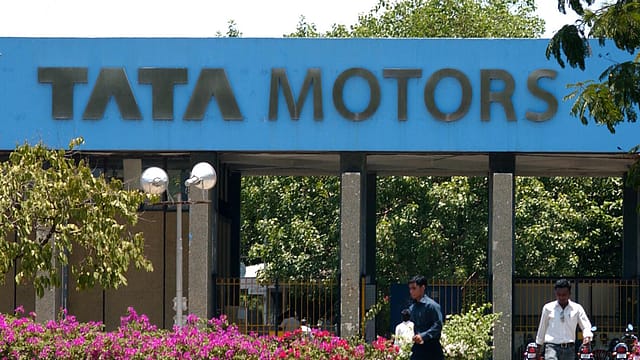Tata Motors India to report zero net debt in March 2024
ADVERTISEMENT

Tata Motors India is on course to reduce its net debt to close to zero in quarter ended March 2024, just as group chairman N Chandrasekaran envisaged in 2022. The automobile giant, which turned around its passenger vehicle business with new launches in the last couple of years, will have to clear ₹3,500 crore of debt in the automotive division in India to achieve the net debt zero target. In March 2022, the company had a net debt of ₹20,487 crore in India.
The consolidated net debt of Tata Motors automotive division, which includes Jaguar Land Rover (JLR), stood at ₹29,200 crore in December, compared to ₹48,700 crore in March 2022. JLR, which had loans worth ₹16,600 crore in the December quarter, has a plan to be net debt zero by FY25. Shares of Tata Motors have more than doubled since March 2022. The company is preparing to announce its Q4 results on 10 May.
The company is enhancing investments in its domestic business and Jaguar Land Rover (JLR) in Europe that is vital to consolidate its presence in its markets. The fact is that new investments have been coming on the way to reaching net debt zero target. Tata Motors plans to invest $1 billion in a new plant in Tamil Nadu to produce luxury cars under JLR.
Tata Motors sales in the domestic and international market for the fourth quarter of FY24 stood at 2,65,090 vehicles, compared to 2,51,822 units in the same quarter of the previous financial year. Total passenger vehicle sales increased 15% in the quarter annually and stood at 1,55,651 units, while commercial vehicle sales of 1,09,439 units were down 6%.
Shailesh Chandra, managing director, Tata Motors Passenger Vehicles Ltd and Tata Passenger Electric Mobility Ltd, says passenger vehicle sales in India are projected to set a record in FY24 with over 4.2 million units sold supported by strong growth in SUV sales, which is expected to surpass 50% of overall sales in FY24 compared to 43% in FY23. At the same time, sales of petrol and diesel-fuelled cars are flattening, he says. "EV and CNG segments are projected to post robust growth of 70% and 55% respectively in FY24 vs FY23, on the back of multiple new launches, widening charging infrastructure and CNG stations," he says.
Girish Wagh, executive director of Tata Motors, says that FY24 began on a promising note for the commercial vehicles industry with the expectation of peak volume achieved in FY19. However, the trend of annual sales growth in volumes has been moderated in the second half of FY24. “The industry transitioned to BS6 Phase II emission norm and we used this opportunity to significantly enhance key attributes across our entire vehicle portfolio. Equipped with smarter technologies to deliver even better performance and value, the advancements have been well received by customers leading to overall sales of around 3,96,000 units in FY24, he says.